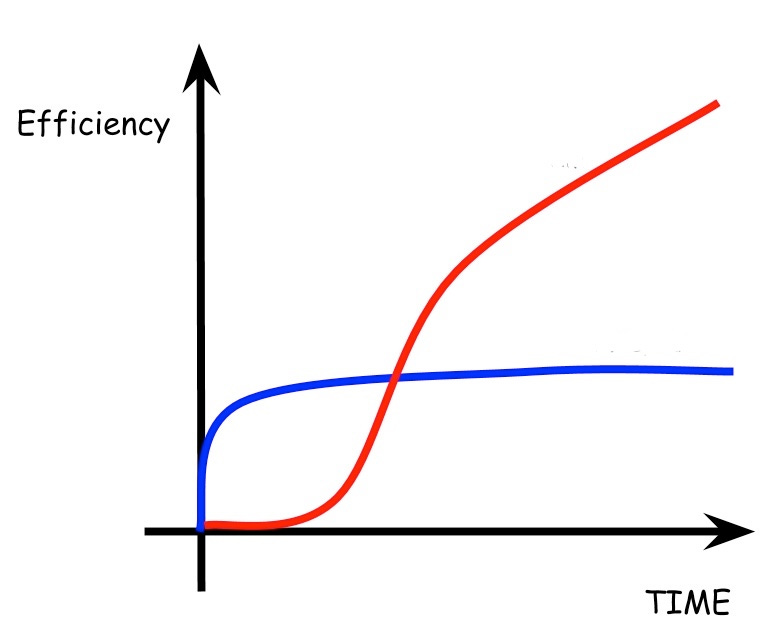There is nothing like a roadmap or a perfect language—do what sparks your curiosity
By - Aditya Joshi
Whenever we start something new, whether it’s a project or a tech stack, the first thing we often do is search for a roadmap. We try to find a syllabus and stick to it because we want the assurance that we’re on the “right path.” While working off the track is either discouraged or our peers say it's just a waste of time. Unfortunately, this mindset is killing our curiosity and making us boring.
While this approach might work for some, the truth is that most breakthroughs come from venturing off the beaten path, fueled by curiosity.
I’ve experienced this firsthand. I've worked on a variety of things: JavaScript for backend projects, Go for building scalable services, and C for creating a network stack from scratch. Each stack brought its own challenges, but what kept me going was the desire to dig deeper and ask, “Why does this work the way it does?”
One time, a friend asked me to collaborate on an IOT project focused on creating a Women's safety band. I had no prior experience with IOT, but the idea intrigued me—and the engineer inside me woke up. I spent hours poring over research papers and dissecting GitHub repos. Within a short period period of time, I managed to build a functional IOT device. It wasn’t the best system I’ve ever built, but the process taught me more than any structured course could.
I’ve also met people who amaze me with their ability to pick up almost anything. Give them 4–5 hours with a new stack, and they’ll already have something running. It’s not because they’re geniuses or have an infinite capacity for learning—it’s because they’re deeply curious. They’re the ones constantly asking, “Why does this happen?” or “What if I try it this way?”
The one thing that unites people like us—whether we’re building services, stacks, or devices—is curiosity. It’s not about rigidly sticking to a roadmap; it’s about letting that one question, “Why?”, drive you to build, learn, and grow.
Why Do We Get Stuck?
Despite the excitement of learning and building, we all hit roadblocks. There are two main reasons why this happens:
1. The Learning Curve
Every new stack or domain comes with a steep learning curve. The first few hours (or even days) can feel overwhelming. New terminologies, concepts, and tools can make progress seem impossibly slow. I remember the first time I tackled networking in C. It felt like every line of code demanded hours of debugging, Googling, and revisiting documentation.
But the trick is to embrace the grind. The frustration is temporary; the skills you gain last much longer. Breaking down tasks into smaller, manageable pieces helps. Instead of trying to master everything at once, focus on solving one problem at a time.
2. Fear of the Unknown
Sometimes, we get stuck because we’re too afraid to try something unfamiliar. Thoughts like “What if I fail?” or “What if I’m wasting my time?” creep in. This fear often stems from comparison—we see others succeeding and assume they never struggled.
But here’s the truth: getting stuck is part of the journey. Whether it’s the learning curve or fear holding you back, the solution is the same: take the next small step. Experiment, ask questions, and let curiosity guide you. Progress might be slow, but it’s still progress.
So, the next time you hit a wall, remind yourself why you started. It’s not about being perfect; it’s about learning, growing, and building.
🔮 Thank you so much for reading this edition of the newsletter. If you found it interesting, share it across your socials.
This edition is written by - Aditya Joshi
We at BashCraft keep it no-fluff—all for the love of engineering. We share our no-fluff content across our socials too, so if you resonate with it, feel free to follow us on LinkedIN, Instagram.



